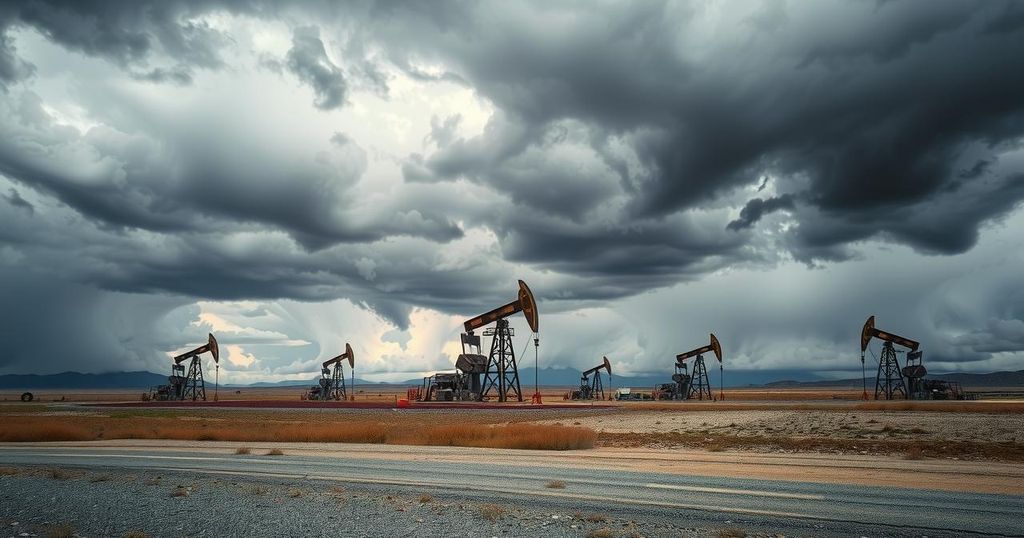Global news
AL, ASIA, BIDEN ADMINISTRATION, CONFLICT, DEVELOPMENT FUND FOR IRAQ, IRAQ, JOE WILSON, KURDISTAN, KURDISTAN REGION, MIDDLE EAST, MILITARY, MOHAMEDSHIA, MOHAMMED SHIA AL - SUDANI, NORTH AMERICA, SANCTIONS, SHA, UN SECURITY COUNCIL, UNITED STATES, US, US FEDERAL RESERVE, WASHINGTON, WILSON
Leila Ramsay
0 Comments
Congressman Joe Wilson Warns al-Sudani Over Looming Oil Fund Freeze
- Congressman Joe Wilson warns al-Sudani about oil revenue accessibility.
- Iran-backed militias threaten U.S. interests in Iraq’s Kurdistan.
- Nine recent drone attacks disrupt Kurdistan Region’s oil operations.
- Iraq’s oil funds are managed through the U.S. Federal Reserve.
- Compensation to Kuwait from oil revenues concluded in 2022.
Congressman Joe Wilson’s warning to Iraqi leadership on oil funds
In a recent statement that has stirred significant concern, Congressman Joe Wilson, a Republican from the U.S., has called on the Iraqi government—specifically Prime Minister Mohammed Shia al-Sudani—to safeguard American interests by taking action against escalating violence in the Kurdistan Region. Wilson is advocating for a freeze on Iraq’s oil revenues currently stored at the Federal Reserve. According to Wilson, this move is intended as leverage to compel al-Sudani to address the disturbing trend of attacks perpetrated by Iran-backed militias against U.S. forces and oil companies operating in that region. It is clear that Wilson’s comments are not just rhetoric; he is suggesting that the U.S. could take tangible steps to impact Iraq’s access to its financial resources if the attacks continue unabated.
Recent drone attacks raise concerns over oil infrastructure
Wilson took to social media platform X to convey his strong message to al-Sudani. He stated bluntly, “Attacks by Iran-backed Iraqi militias against U.S. forces and American oil companies in the Kurdistan Region of Iraq will not be tolerated.” He insisted that the Iraqi leadership must take decisive actions to prevent further escalations or face serious consequences, particularly regarding the handling of oil funds. The drone attacks that have recently plagued the Kurdistan Region’s oil sector underscore the urgency of this situation. Nine separate drone attacks have already led to shutdowns, crippling operations and threatening critical infrastructure upon which the region’s economy relies heavily.
Understanding Iraq’s oil revenue management and history
To put matters into perspective, the context of these oil revenues is crucial. Following the UN Security Council Resolution 1483 back in May 2003, Iraq’s oil and gas export revenues have been channeled into a special fund at the U.S. Federal Reserve, known as the Development Fund for Iraq. This fund has played a pivotal role in Iraq’s post-war economic framework. Notably, five percent of these revenues were specifically designated for compensating Kuwait for damages incurred during Iraq’s 1990 invasion. This compensation process wrapped up in 2022, with Iraq making payments that totaled around $52.4 billion. It highlights the complex intersection of geopolitics and economic realities that both the U.S. and Iraq must navigate as tensions continue to escalate in the region.
Congressman Joe Wilson’s stark warning to Iraqi Prime Minister Mohammed Shia al-Sudani reflects deepening tensions tied to Iran-backed militia attacks in the Kurdistan Region. He emphasized possible financial repercussions surrounding Iraq’s oil funds held at the Federal Reserve, putting pressure on Iraq’s government to act decisively. At the same time, recent drone attacks pose significant risks to infrastructure, creating a precarious situation for the economic stability in the region and the Iraqi government’s relationship with international stakeholders.




Post Comment